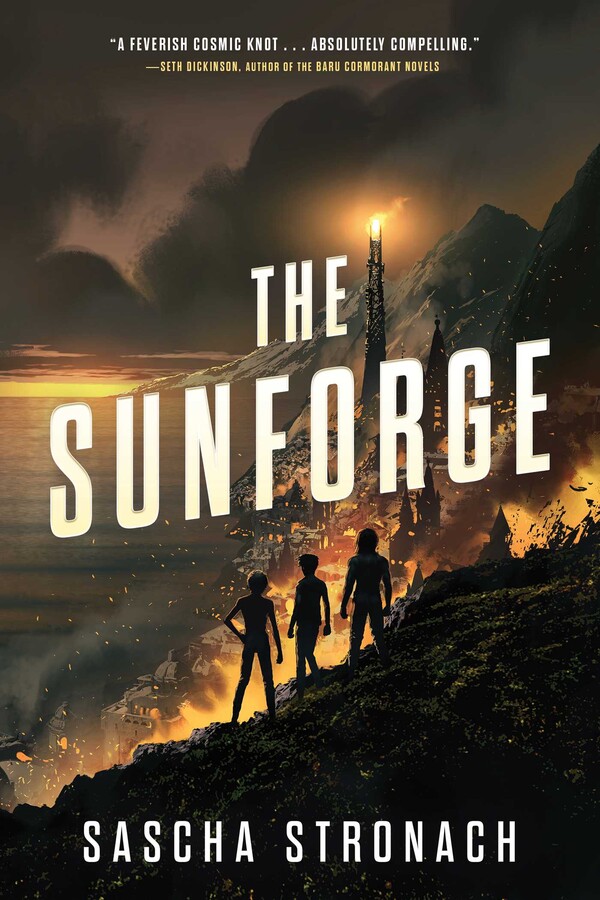Umbrella Academy is really fucking good. A loose adaptation from My Chemical Romance frontman Gerard Way’s comic series of the same name, it follows the Hargreeves siblings: a group of seven kids who are adopted by a cold and eccentric scientist after being born simultaneously, all over the world, to women who weren’t pregnant. He tries to train them as a superhero team, but it ends in calamity. The gang breaks up and goes their separate ways. Years pass, then they get a message—their adopted father is dead. One by one, they return home to mourn, rage, or steal his silverware.
It’s hard to avoid comparisons to infamous bomb Suicide Squad: it’s a comic book movie about a team of antiheroes who must overcome their collective neuroses in order to fight a greater existential threat, with a bombastic classic pop soundtrack and so much stylisation it gives the viewer a contact high. It’s hard to pin down why Umbrella Academy works and Suicide Squad doesn’t. Yeah, there’s Squad’s troubled development history and last-minute recut, but a lot of UA’s best moments are similar to the worst moments from the Squad recut, like an extended sequence of the Hargreeves dancing alone to Tiffany’s 1987 banger I Think We’re Alone Now, a choice so on-the-nose that it rockets through obvious all the way to brilliant. It’s hard to say it’s in-keeping with the aesthetic of the comics (who would be? The Dresden Dolls? Nick Cave? The Mountain Goats? That weird shanty-punk band your mate with a beard insists will change your world?) but it’s in-keeping with the vibe, which is an altogether trickier thing to puzzle out.
And that might be the secret: though Gerard Way wasn’t involved in the show, his source material is fertile ground for wonderful, wonderful melodrama. My Chemical Romance was never a subtle project—it was romantic in the classical sense: emotional in velocity and emotional in volume: reckless, weird and powerful. Suicide Squad was trying to balance David Ayer’s sombre, realistic antihero tale with Trailer Park’s bombastic phantasmagoria and got, well, a mess. Umbrella Academy knows exactly what it is and goes for broke. It’s packed with raw, unashamed emotion, much like those classic MCR tracks we were too cool to admit we loved back in high school. Which is why a very, very obvious pop song choice enhances the scene instead of distracting from it.
The cast are revelling in the madness, with Kate Walsh’s Noir-Fatale-Meets-Middle-Management turn as The Handler being a standout. It’s also good to see Robert Sheehan getting some juicier roles: Mortal Engines—which looked set to be his big break—was a dud, and he’s been mostly wasted since Misfits. He can’t do a US accent to save himself, but failing to make the Oscar-Wilde-esque Klaus Hargreeves Irish was a mistake anyway. Cameron Britton and Sheila McCarthy have an unexpectedly sweet and gentle subplot—it’s lovely to see an older couple kinda just doing their thing. The melodrama crashes into it at 100km/h in the later episodes, but by then everything is hurtling downwind, glorious and fun and on fire.
If you’re looking for restraint, this is not the show for you. This is a show where a character gets so mad that all the lamp-posts in the street bend towards them, because their emotions have the power to reshape the world. This is a show where a character threatens to electrocute another in a heart-shaped spa pool. This is a show where the main cast—each isolated by their own damage, desperate for human connection, trying to reach out to each other and failing because they haven’t yet learnt to stop lashing out in their pain—dance alone to I Think We’re Alone Now, then the camera pans out to show a cross-section of the house to show they’re all dancing together. It spits on subtle, and comes out with something so ridiculous that it makes its way back around to beautiful.
Also, Robert Sheehan kisses another man and it’s fucking hot.
Umbrella Academy is currently available on Netflix NZ.
